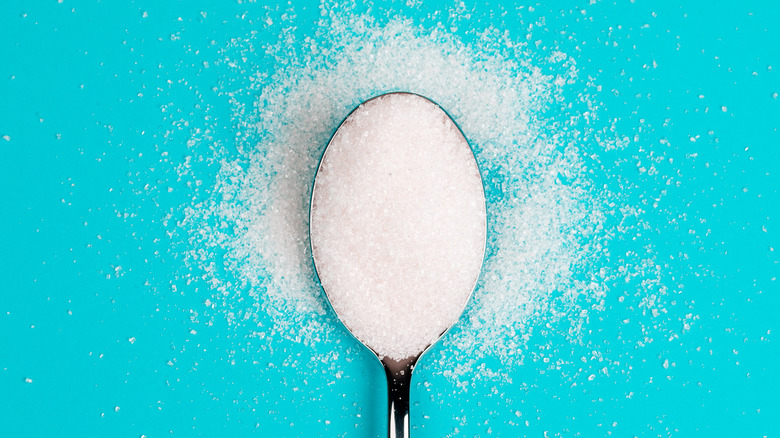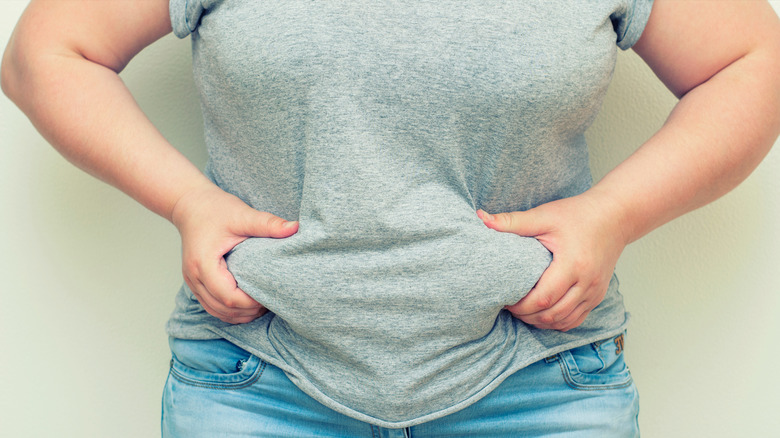Is Sucralose Bad For You?
By now, everyone should know that processed sugar is bad for your health. Still, many children and adults use sugar as more of a dietary staple than an occasional indulgence. Healthy Food America says 58% of Americans admit sugar makes up 20% of their daily calories. That's over 25 teaspoons of sugar each day. Because of sugar's toxic effects, many people look to low-calorie sweeteners like sucralose to satisfy their sweet tooth.
A 2017 study found that 41.4% of adults and 25.1% of children in the U.S. reported consuming low-calorie sweeteners (LCS), with most using LCS daily. Sucralose, also called Splenda, is an artificial sweetener made from processed sugar (via WebMD). Replacing the hydroxyl molecules in sugar with chlorine makes sucralose 600 times sweeter than sugar, so less is more. The result is a super-sweet substance containing almost no calories.
WebMD says swapping sucralose for sugar can help reduce calorie intake and help keep blood sugar levels balanced, particularly for people with diabetes who can't have sugar. But is sucralose bad for you?
Studies find sucralose can increase risk for obesity
According to Harvard Health Publishing, excess sugar can lead to weight gain. But a 2018 study presented at The Endocrine Society's 100th Annual Meeting suggests sucralose can also increase your risk of obesity. And because you think you're taking in almost no calories, you may consume more sucralose than you usually would sugar. Associate Professor of Medicine at George Washington University in Washington, D.C. Sabyasachi Sen, M.D. explained that "as the dose of sucralose is increased, more cells showed increased fat droplet accumulation."
Sen says the evidence shows sucralose interferes with metabolism and can promote the accumulation of free radicals (highly reactive molecules that interfere with healthy cell activity, slow metabolism, and cause inflammation and disease). And internist Kavita Rao, M.D. says that sucralose and other artificial sweeteners can increase the risk of diabetes, heart disease, and other health conditions.
Sucralose affects brain function too. Scientific American reports that Splenda activates the brain's reward system just like sugar can. Unlike sugar, however, which satisfies cravings, sucralose never satiates the brain, leading to overindulgence and more cravings. Plus, Columbia University notes the way sucralose and other artificial sweeteners interact with the gut biome may cause laxative effects like bloating, gas, and diarrhea in some people (via Go Ask Alice).
The takeaway is this: Sucralose is probably safe in moderation. However, Dr. Rao suggests, that other natural sweeteners like raw honey, vanilla, cinnamon, and stevia are healthier choices.


